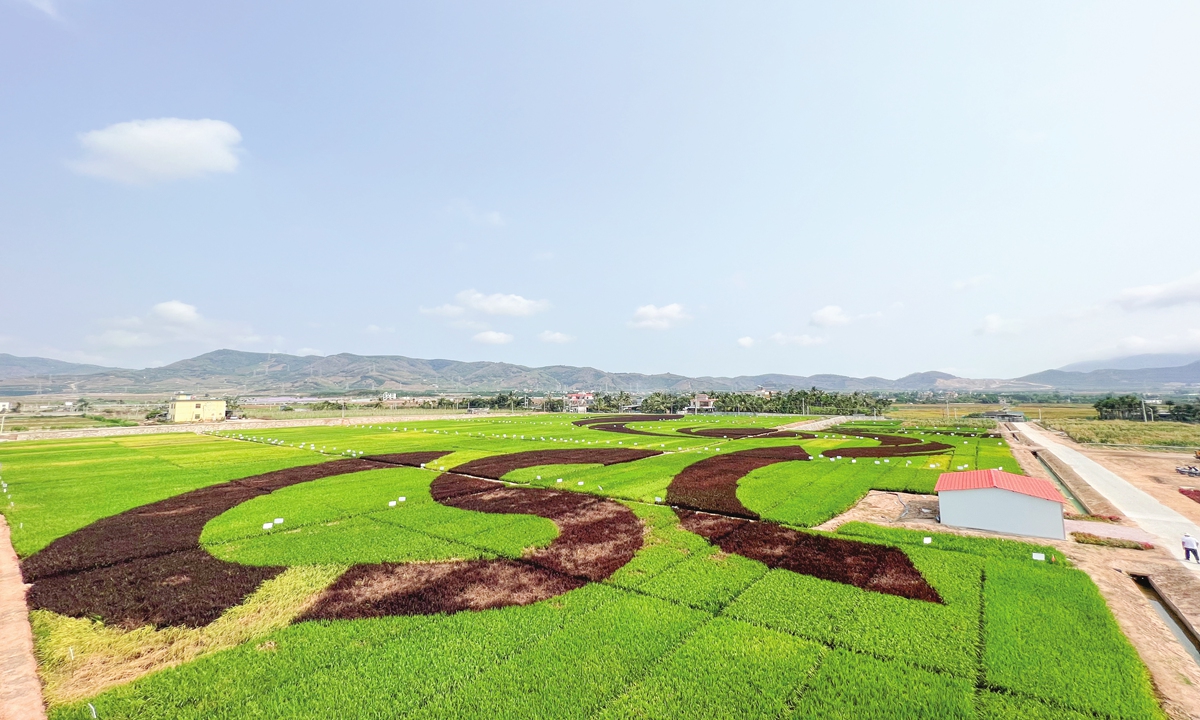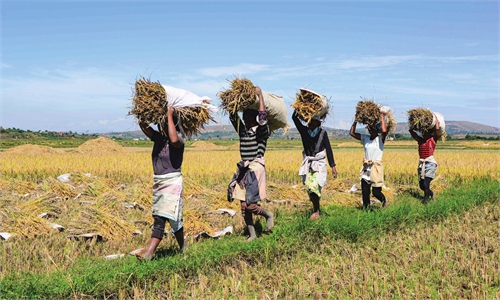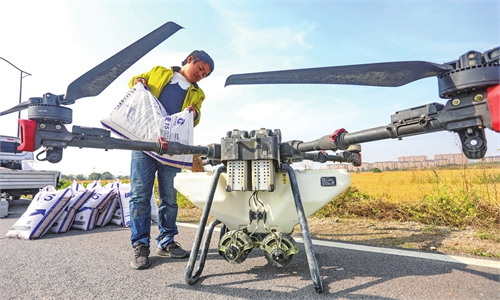China’s seed development program achieves phased results, with breakthroughs in some key technologies and major varieties

The Yazhou National Modern Agricultural (Seed Industry) Industrial Park in Sanya, South China's Hainan Province on April 2,2023 Photo:Wang Cong/GT
China's drive to invigorate its seed industry has achieved phased results, and breakthroughs have been made in some key technologies and major varieties, the Ministry of Agriculture and Rural Affairs (MOA) said on Wednesday.
Seeds are often called the "chips" of agriculture, and analysts said that the seed sector is a national strategic and basic core industry. China has built laboratories to improve its self-sufficiency of seeds.
The action to invigorate the seed industry has effectively improved the supply capacity and quality of grain and other agricultural products, which are crucial to ensure food security, analysts noted.
Since the implementation of the seed industry invigoration campaign in 2021, landmark achievements have been made, along with partial progress in various areas, the MOA said in a statement on Wednesday.
Breakthroughs were made in some key technologies and major varieties. Major projects on key and core seed technologies and biological breeding were launched, and solid progress was made in the national joint research effort on breeding and the plan for the genetic improvement of livestock and poultry species, read the statement.
Ensuring the stability of food supply is always a priority on China's work agenda for the agricultural sector, Jiao Shanwei, editor-in-chief of industry news website cngrain.com, told the Global Times on Wednesday.
In order to realize the target of ensuring food security, China will continue to increase support for the research and development of seeds, which is an essential part of agricultural science, technology and equipment, said Jiao.
According to MOA, China's two independently developed gene editing tools are speeding up commercialization of new varieties.
The domestic "genetic chips" for breeding of pigs and cows can replace imported ones.
In terms of grain, saline-tolerant wheat varieties and fast-growing winter oilseed rape varieties have been cultivated, and the first 51 transgenic corn and soybean varieties will soon be approved, according to the MOA.
The breeding of traditional grain crops, such as soybean, corn, rice and wheat, and the promotion of high-quality varieties, are priorities of China's seed invigoration action, Wang Gangyi, a professor at Northeast Agricultural University, told the Global Times on Wednesday.
The ministry announced that the market share of domestically bred white feather broilers has exceeded 20 percent. The poultry variety has been exported to Tanzania, going abroad for the first time.
On June 16, 2023, 16,500 chicks shipped from Beijing landed at Tanzania's Julius Nyerere International Airport, marking the first time that China has exported its own poultry breed, the Global Times learned.
"China has called for technological breakthroughs in seeds, and also for strengthening the construction of seed banks, which are the foundation of innovation in the seed industry," said Wang.
The building of seed banks has been accelerated since 2021, when China started its seed industry invigoration campaign.
For example, the Yazhou Bay Seed Laboratory in Sanya, South China's Hainan Province, was established in May 2021. The lab is located at the Nanfan breeding base in Hainan, which is known as the "Silicon Valley" of China's seed industry.
China's germplasm pool has 443,000 samples of crop resources, according to the Xinhua News Agency.



